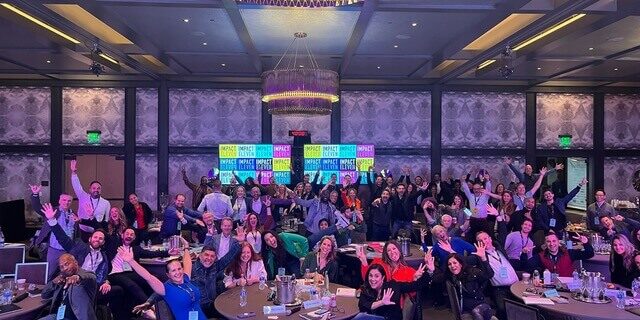We did the HR Happy Hour radio show last week on Passion on Purpose . I’ve had several very interesting, engaging conversations about passion and work over the last few days with smart thinkers, writers and doers in the human capital/leadership space. We didn’t always agree but the debate and dialogue was very interesting and spirited (ok, passionate) discussion.
I really never imagined the word passion would evoke so much….well, passion.
The word certainly generates it’s fair share of criticism. It sounds lofty. Idealistic. To some even a bit frivolous and largely unattainable. Without question for many it quite simply may not be a core driver for showing up at work. I get that. The “average person” just wants to pay their bills (so I have been told). Take care of their family. Work is a means to the end and there is nothing wrong with trading a day of good work for fair pay. You don’t have to love it. You can actually feel quite indifferent about it I suppose. If it serves a larger purpose (or the things you are truly passionate about – family, security, health insurance, a vacation home or whatever that looks like for you).
Further, the notion that we should simply follow our dreams, do what we love and money will somehow show up is a bit naive and from my perspective, rather bad career advice. I have been passionately playing basketball for 30 some odd years and I can verify this surely isn’t the case. I’ve also watched The Secret. While I believe in the incredible power of the human mind and spirit, I also think manifesting a Maserati is more about hard work than mastering hidden laws of the universe.
However, I can assure you that the organization and leader capable of elevating engagement, enthusiasm and emotional commitment (passion) from their employee and customer universe has an enormous advantage beyond the bottom line (it will show up there). As part our consulting work I’ve been fortunate to have the opportunity to interview literally hundreds of employees at a rather diverse group of employers over the last year. We’ve talked to employees at small companies in the Midwest you wouldn’t recognize. We’ve interviewed high potentials at category leading brands and Fortune Best Places to Work employers like Microsoft and Mayo Clinic. We asked questions about engagement, leadership, career path, work style design, performance, money, mission and meaning. We listened. We learned.
We learned that people consistently emphasized a meaningful experience over money. Many people we interviewed were willing to take risks, embrace change and accept new challenges to more closely align with meaningful work and a larger sense of purpose. That didn’t always translate into changing the world. Sometimes it did. Sometimes it simply meant a better world at work. The word passion made it’s way into more than a few of those conversations. Perhaps it is no surprise that high potentials make the correlation between their own performance and engagement, enthusiasm and emotional commitment. Perhaps it is no surprise that progressive, category leading organizations continue to invest purposefully in their people strategy and help employees stretch and grow to achieve their full potential.
Steve Jobs once famously remarked, “Your work is going to fill a large part of your life, and the only way to be truly satisfied is to do what you believe is great work. And the only way to do great work is to love what you do. If you haven’t found it yet, keep looking. Don’t settle. As with all matters of the heart, you’ll know when you find it. And, like any great relationship, it just gets better and better as the years roll on. So keep looking until you find it. Don’t settle.” {Tip: If you haven’t seen this speech it is worth watching. CLICK HERE}.
I suppose it begs the question, can you be successful without being passionate about your work? About work you don’t love? I believe you can. I suppose I would have been considered such for a brief stretch in my own career. I found it just isn’t nearly as much fun or fulfilling. I also increasingly find that kind of fulfillment can carry over and impact the whole person.
I have been rather fortunate to spend a fair amount of time working with colleagues and clients who aspire to be anything but average. Those organizations and individuals aspire to elevate the work experience and cultivate a “whole person career”. I think that is work worth doing.








![[RYAN] Featured_Why Human-Centered Leadership Is the Future of Growth [RYAN] Featured_Why Human-Centered Leadership Is the Future of Growth](https://ryanestis.com/wp-content/uploads/bb-plugin/cache/RYAN-Featured_Why-Human-Centered-Leadership-Is-the-Future-of-Growth-1024x538-panorama-78e9dc1762c564216c0e9d2780c005b1-.jpg)

